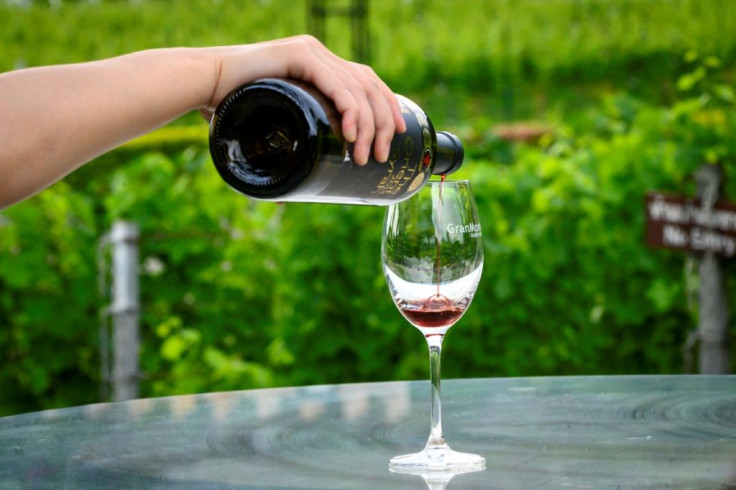For French Wine Pros, Covid Smell Loss Is An 'Amputation'
No-one likes to lose their sense of smell or taste -- a common symptom of Covid-19 -- but for the sommeliers and other wine professionals of France, it is particularly traumatic.
"It's very hard to admit that we've lost these senses," said Sophie Pallas, director of the Union of French Oenologues. "I was very affected as an individual because wine is the central passion in my life."
She caught Covid-19 in January, and said she was still in the middle of her recovery.
"When we are robbed of these senses, our experience of pleasure and desire is amputated. I lost my appetite and totally lost my desire to drink wine," she said.
As her senses have gradually returned, she said, the process has at least been interesting from a scientific point of view.
"It's very interesting to rediscover the world of aromas. As a professional, I've been able to look at it very analytically."
With guidance from experts at the University of Bordeaux, she has been rebuilding her brain's internal database of smell associations that guide our ability to recognise odours -- testing her nose multiple times a day.
Pallas was speaking this week at a virtual conference organised by the union, which presented a study into the impact of Covid-19 on the wine sector.
It interviewed 2,625 wine professionals between May and July, mostly from France but also Italy, Chile and other countries, of whom 68 had contracted Covid-19 in the first wave.
Of them, two-thirds lost their sense of smell and 56 percent their sense of taste.
Most -- 61 percent -- reported a full recovery, but 32 percent said their senses had only partially returned, while seven percent said they had not recovered at all.
"It's like a musician losing their instrument," said Didier Fages, president of the union.

Judging by previous coronaviruses, full taste and smell can take up to 18 months to return, and the process can be very worrying for those who rely on having finely tuned noses and taste buds.
"When the fever fell and my appetite returned, I tried wine and I could immediately tell there was a problem," said Philippe Faure-Brac, the 1992 best sommelier in the world and current president of the Union of Sommeliers, who caught Covid-19 a year ago in the first wave.
"It was very disturbing. There was no smell. I had sensations in my mouth but they were limited and focused on basic flavours and not the subtleties. It lasted nine days --- I counted."
Basic smells began to return and he encouraged them with wines he knew well -- particularly fruity or spicy vintages.
"Taste took a bit longer. There was a feeling of alcohol burn, of strong tannins... that lasted several weeks," he said. "It was very hard to take any pleasure from taste."
Serge Dubois, vice-president of the International Oenologues Union, had a similar experience.
"From one day to the next, I couldn't tell the difference between a pastis and a glass of wine," he told AFP.
Months later, he was still not functioning at 100 percent.
"When I'm testing something, there is something missing. There isn't the full palette of flavours... It's worrying, you are less sure of yourself."
The union this week called on the French government to prioritise the wine industry for vaccines and ensure that people have access to the latest medical support.
"The ability to analyse taste and smell is a daily tool of decision-making for oenologues from harvest through to bottling," said Pallas.
"It's important to talk about it, not allow people to be isolated in a very negative psychological atmosphere."
© Copyright AFP 2024. All rights reserved.





















